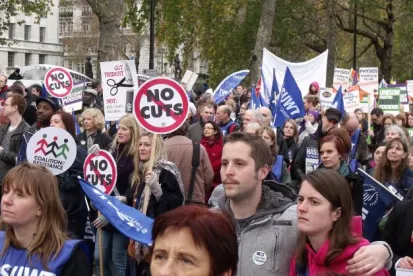For more than five decades, employers could cease deduction of dues at the expiration of a collective bargaining agreement as a legitimate economic weapon. It was only recently that, as part of the constant shifting of precedent at the Board, the decades-old rule has been disturbed.
On September 30, 2022, the National Labor Relations Board issued the most recent iteration of the rule. In a 3-2 decision (split along party lines) Valley Hospital Medical Center, Inc. [Valley Medical Center II], 371 NLRB No. 160, the Board once again held that employers may not unilaterally cease dues checkoff arrangements after the expiration of a collective bargaining agreement. Specifically, Democrat Board members Chairman Lauren McFerran and Members Gwynne Wilcox and David Prouty determined that the employer must continue deducting dues until either a new contract or valid impasse is reached because such deduction “should be treated as part of the status quo that cannot be changed unilaterally after contract expiration.” The Boar+d applied the new rule retroactively and concluded that the employer should pay the union dues that were not collected after it ceased dues deduction.
Valley Medical Center II marks the third change to dues deduction post-contract survival in less than a decade. First, the 2015 Board overruled fifty years of precedent by holding that ending dues deductions post expiration was unlawful in Lincoln Lutheran of Racine, 362 NLRB 1655 (2015). Shortly thereafter, in Valley Medical Center, Inc. [Valley Medical Center I], 368 NLRB No. 139 (2019), when the administration changed, the Board reversed Lincoln Lutheran and (again) allowed employers to end dues deductions after contract expiration.
The Board’s decision in Valley Hospital Medical Center II comes after years of appeals in federal court, including a remand by the Ninth Circuit that roundly criticized the Board’s decision in Valley Medical Center I for its “inadequate” reasoning, with the court stating that the Board “was required to grapple explicitly with the[] apparently contrary precedents [of the dues checkoff rule] . . . but failed to do so.” Local J. Exec. Bd. of Las Vegas v. NLRB, 840 F. App’x 134 (9th Cir. 2020).
Members John Ring and Marvin Kaplan dissented, citing the long-held Board precedent established by Bethlehem Steel, 136 NLRB 1500 (1962), allowing for employers to unilaterally cease dues deductions post-contract expiration. The dissent argued that the dues checkoff issue is “unique” and “a special status separate from other terms and conditions of employment” because both the duty to deduct dues necessarily arises from a contract, and the statutory framework of the Taft-Hartley amendments of 1947 and the Labor Management Relations Act restrict employers’ payment of monies to unions. Therefore, the dissenters concluded that “the termination of dues-checkoff provisions . . . has been a legitimate economic weapon.”
It is doubtful this represents a major change. Most employers do not automatically cease dues deduction at the expiration of an agreement. Moreover, the issue can be solved—no matter what Board case law says—by simply inserting language in the check-off provision stating that it survives only as long as the agreement.



 />i
/>i

